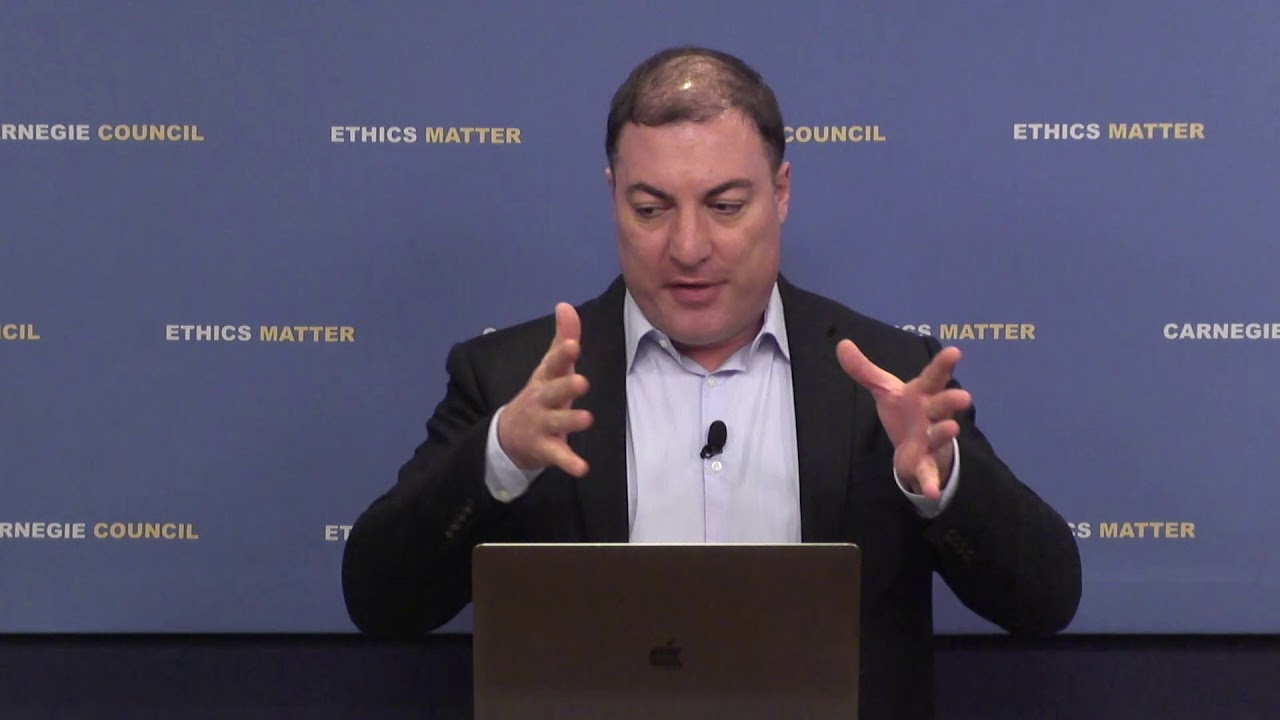
The New Rules of War: Victory in the Age of Durable Disorder, Sean McFate; HarperCollins, 2018, 341 pages
“Subversion,” writes the international relations expert Sean McFate in his newest book, The New Rules of War: Victory in the Age of Durable Disorder, “will be everything in future wars.” The importance of deception is one of Sun Tzu’s lessons in the Art of War, yet Western military leaders—particularly the senior leaders of the U.S. military—have plainly forgotten these age-old lessons. In fact, the “new rules of war” as McFate refers to them are simply a return to the basics. Far too often, American leaders have wrongly taken high-technology and new political science theories to be the keys to victory in postmodern warfare. Little wonder, then, that, as McFate assesses, in almost every post-Cold War conflict the United States has been engaged in, it has fallen short of victory.
"Only by adapting now to these changing threats, to be sure, can the United States prevent rivals from supplanting its power. If we do not follow Sean McFate’s strategy, defeat at the hands of the Chinese, the Russians, or someone else is in our near future."
The thrust of McFate’s argument is one that I have long posited in my own writing: that America’s leaders have proven unable (and unwilling) to embrace the kinds of fundamental reforms needed to remain a competitive force in 21st century warfare. We have the best trained, highest-funded, and most sophisticated fighting force in all the world. And yet stateless terrorist organizations, such as Al-Qaeda, and two-bit dictatorships, such as Iran and North Korea, are able to hold that vaunted U.S. military hostage. Other rivals—Russia, China—continue to run circles around our country, despite spending significantly less money on their armed forces, and not having anywhere near the capabilities that the U.S. military possesses.
All of these American foes have two crucial things in common. The first is that they are far less advanced, militarily and economically, than the United States. The second is that they have mastered the art of what has become known as asymmetrical warfare. Or, as the Israelis have dubbed it, “Grey Zone” warfare. McFate calls this phenomenon “shadow war.” In the post-Cold War “unipolar moment” which neoconservative thinkers such as the late Charles Krauthammer exhorted, many assumed that the presence of an overwhelmingly potent U.S. military would deter future rivals. Instead, it merely forced America’s enemies to take warfare “underground,” as McFate claims. In essence, to use the title of another recent book, by Thomas J. Wright, on the subject, America’s enemies seek to defeat us by using All Measures Short of War. We in the United States tend to view warfare as being akin to pregnancy: you either are or are not pregnant, and so too, you either are or are not at war. America’s rivals, by contrast, view warfare on a spectrum. Thus, China has no qualms about employing economic warfare methods to debilitate the Americans without having to directly engage in battle with American forces.
Information Warfare is the Ultimate Warfare
In the 20th century, information warfare was viewed by many as ancillary to the more important parts of military strategy; that is, gaining supremacy over one’s foes on land, at sea, or in the air. Today, however, information warfare has not only become an essential component of warfare; in many respects, it has become the essence of warfare. Shadow wars, like so many things in our time, are paradoxical in nature. Shadow warriors are subversive. Still, they require continuous media exposure—for perception management purposes—to survive and thrive in a conflict against a conventional foe, such as the United States. In “shadow war,” says McFate, “subversion is the strategy and plausible deniability is the tactic.” For McFate,
Shadow war is powerful because it weaponizes information in an information age. Conventional warriors shrink from the media spotlight, whereas shadow warriors embrace it. Having the 24/7 news cycle catch your troops committing war crimes spells defeat for the conventional warrior. Not for the shadow warrior. Not only does he deny they are his troops but claims they belong to his enemy, who must be sent to the Hague! For shadow warriors, the media is not a liability but an opportunity. The conflict in Ukraine is just one example of how shadow strategies defeat conventional ones in modern warfare.
In order for deceptive warfare to work, McFate argues, information supremacy is key. Through information supremacy, one can properly deceive an opponent. Since, moreover, deception is the basis of warfare (in both McFate and Sun Tzu’s postulations), the side that can sow the most confusion in an enemy without physically engaging in conflict with him, the side that can get an enemy to effectively break himself before ever coming into physical contact with him, has won the war.
One of McFate’s favorite targets of criticism is the much-ballyhooed F-35 Joint Strike Fighter. Created around 20 years ago to be the fighter plane that could do everything for everyone, it has turned out to be mostly a failure. It has little applicability to the types of wars the United States is currently fighting (ground wars in Eurasia), and the Pentagon is already mapping out plans to create its replacement. This is to say nothing of the decades’ worth of setbacks and failures associated with the technology of the F-35. Essentially, the Pentagon has spent more than $1 trillion—more than Russia’s entire GDP—on the F-35 program over 20 years but has little to show for it except headaches. Meanwhile, the Russians, with a defense budget of $49 billion, were able to seize Crimea from the U.S. ally of Ukraine using nothing more than gumption and the relatively cheap shadow warfare techniques that McFate analyzes in his book.
The F-35 was designed to bomb enemies into submission using the most advanced technology imaginable. Today, however, according to U.S. intelligence sources at least, Russian-controlled bots on social media can be far more effective at tricking an opponent than any fifth-generation warplane can. Or, putting the matter in the context of the War in Afghanistan, can anyone other than McFate explain how it is that America’s hyper-technological, well-funded, expert-trained military has been unable to defeat the rag-tag Taliban forces in Afghanistan for 20 years? We can bomb and kill our way to battlefield victory after battlefield victory; the staying power of the Taliban at the political level remains. During the course of the entire war in Afghanistan, the Taliban have worked assiduously to maintain their support within the Pashtun population of Afghanistan, the largest ethnic group in the country. Even when the United States appeared to have enjoyed a stunning victory over the Taliban in 2001, by 2003 those gains had been reversed, and the Taliban never let the Afghan people forget that.
Clausewitz vs. Sun Tzu
McFate makes a fascinating comparison between the works of two of the greatest military strategists in history, Carl von Clausewitz and the aforementioned Sun Tzu. To many Western military thinkers, Clausewitz’s On War is the pinnacle of military thought, while Sun Tzu is rarely taught in Western academies (and, when he is taught, it is often done poorly). McFate thinks that the differences in the works of Clausewitz and Sun Tzu sum up the current cultural differences between the United States and its enemies perfectly. Clausewitz thought that force is the sine qua non of successful war-making, whereas what he dubbed the “fog of war,” the lack of reliable information in conflict, is the great enemy of armies. Sun Tzu, on the other hand, held the opposite. According to him, “Deception is the acme of skill.” If Clausewitz loathed the fog of war, Sun Tzu relished it. Therein, he believed, conflicts are won or lost. And, since the presence of nuclear arms and America’s overwhelming conventional military superiority ensure that all who oppose the United States would lose in a war, our rivals must seek alternative ways to defeat the nation.
In sum, in today’s full-spectrum battlefield, the Clausewitzian obsession with martial force is inferior to the far nimbler professions of Sun Tzu. And, when it comes to brute force versus intelligence, the latter is usually the winner.
Strategic Atrophy Among America’s Sclerotic Elite
It is sad that such a book as McFate’s had to be written. That it had to be written suggests to my mind just how degenerate the West has become. Think about it: Western Civilization has waged wars throughout its history. It has a long track record of success and innovation. Yet, since the end of the Cold War, the Western way of war has failed to evolve. Instead, it has atrophied and allowed lesser foes to gain considerable advantages over it. I think that the lack of innovation and foresight is a result of the continued deterioration that we see throughout Western society, not only in the realm of warfare.
One would have thought that the years of fighting terrorist cells employing unconventional warfare tactics against the United States would have alerted U.S. military planners to the possibility of a new form of warfare. After all, Al-Qaeda did not hit the United States with conventional weapons. No, the most devastating attack on American soil was conducted using nothing more than box cutters and civilian airliners that were fashioned into manned cruise missiles. Al-Qaeda had used America’s broken immigration system to ensure that the 9/11 terrorists remained in the United States long after their student visas had expired. The terrorist group also desired for 9/11 to be a global, mass media event—which, of course, it was. They hoped that the images of the once-unbeatable United States being hit in such devastating ways on September 11, 2001, would inspire their co-religionists elsewhere to rise up against American-backed governments in the Sunni Arab states and replace them with Islamist ones.
America may have damaged Al-Qaeda and killed Osama Bin Laden, the mastermind of the 9/11 attacks, but the War on Terror is far from over—and likely never will end. If only because we have been slow to learn how to use the tactics of shadow warfare as well as our enemies have had to learn them. After 20 years of this, the differences show, nor are they in America’s favor. As McFate admonishes his readers, “Victory belongs to the cunning, not to the strong.” For example, the North Vietnamese defeated the United States in the Vietnam War not through superior weapons or better soldiering. Rather, they defeated the United States through the assiduous management of perception in the U.S. domestic media. Hanoi’s spies understood that the draft in the United States was highly unpopular; that many of America’s military age youth, along with what was then a growing coterie of American elites, were increasingly opposed to the U.S. intervention in Vietnam. So, North Vietnam (along with their Communist allies in the Soviet Union and China) formulated a total information war campaign aimed at further discrediting the U.S. government’s war effort at home. The anti-war movement often marched arm-in-arm (whether knowingly or not) with Communist front groups, many of them actively seeking to hand a defeat to the United States in Vietnam, in order to prop up Hanoi’s regime.
Now, had it been a conventional military-to-military fight; had the press not become yet another strategic domain where the two sides could do battle, it is unlikely that Vietnam would have been unified under Hanoi’s government. At the very least, the Americans would have divided Vietnam along similar lines that they ultimately did to the Korean Peninsula: between a Communist north and a pro-American south. Alas, the information war—even more important than the physical battlefield—was won by the Communists. It was in the invisible space of the information domain that the minds of the American people were shaped into a defeatist attitude. Thus, no matter how many battlefield victories the United States enjoyed, support for the war among Americans was always in doubt, and therefore the political leaders had to formulate short-term strategies that proved ineffective at defeating the insurgent threat of North Vietnam. (Even the much-ballyhooed Tet Offensive was a major defeat for North Vietnam’s forces, but was not portrayed as such in America’s anti-war media). Henry Kissinger once assessed that “The guerrilla wins if he does not lose. The conventional army loses if it does not win.” The information war that Hanoi waged was their most important asset in defeating the militarily superior Americans during the Vietnam War.
Starving War Artists and Fat Peaceniks
Sean McFate is a man who has spent his professional life in the military. He first served as a U.S. Army Special Forces officer and then as a master shadow warrior as a Private Military Contractor fighting throughout the various conflict zones of the world. He now teaches international relations at both Georgetown University and the National Defense University. He rightly argues that “strategic atrophy” has consumed Washington, D.C. McFate urges American strategists to quit thinking of war as an either-or paradigm. For warfare is perpetual today and disorder is durable. To survive in this condition, then, America’s strategists must craft a national grand strategy that seeks to “prevent problems from becoming crises and crises from becoming conflicts.” Strategic subversion, not conventional battle, will win wars from here on out. If the latter were sufficient, then Afghanistan would have been over 19 years ago. Throw the old playbook out and embrace the uncertainty of today—all the while learning to benefit from that uncertainty.
American leaders must also come to recognize the changing nature of the battlefield. Not only have mercenaries returned to the battlefield, in a return to the days when warfare was as much of a business as it was a state-driven endeavor, but space piracy could become a new trend. This is especially true as the privatization of warfare continues and runs into the dual trend of the militarization and the privatization of space. Earlier this year Senator Ted Cruz (R-TX) mentioned this issue, but in typical fashion, the mainstream media mocked it despite having no understanding of just how serious this new form of private space warfare could become very soon.
To counteract the growing atrophy of American strategy, McFate recommends that Washington “invest in people rather than machines, since cunning triumphs over brute force, and since technology is no longer decisive on the battlefield.” He calls this new breed of strategist a “war artist.” Depressing though it is to think of the United States needing a profession of war artistry, the lack of such thinkers at the national strategic level has proven to be one of our biggest failures during this century, when many have vainly thought that the United States could never lose a conflict (or, as Francis Fukuyama infamously argued, that the United States, having won the Cold War, would never again have to wage war). Nor should it surprise us that upstart countries, such as China, would dare to risk everything for a shot at becoming the proverbial global king, or that they would do so by not playing by America’s rules for conventional war. In the words of North Vietnamese General Vo Nguyen Giap (as quoted in the book):
The American soldiers were brave, but courage is not enough. David did not kill Goliath just because he was brave. He looked up at Goliath and realized that if he fought Goliath’s way with a sword, Goliath would kill him. But if he picked up a rock and put it in his sling, he could hit Goliath in the head and knock Goliath down and kill him. David used his mind when he fought Goliath. So did we Vietnamese when we had to fight the Americans.
The new art of war is quite dissimilar from the kind of war to which we’re accustomed. Rarely are the battlefields clearly delineated today. Even rarer is the presence of armed, uniformed personnel fighting those battles. More often than not, the battle has already been fought and decided before any physical contact between the belligerents has occurred. And, unfortunately for us, that conflict has usually redounded to the favor of America’s foes. For we are fighting new wars with old rules. Or, at the very least, we’ve forgotten the most basic teachings of warfare in favor of newfangled ideas that have little bearing on or relation to the reality of war today.
Under these conditions, then, McFate is correct: The West will be defeated if it cannot adapt to the future of war. Indeed, as McFate claims, Western powers are “already losing on the margins to threats like Russia, China, and others that, having made the leap forward, grow bolder each year. Eventually someone will test us—and win.” The New Rules of War: Victory in the Age of Durable Disorder not only details the problems the United States faces going forward, but gives an elegant set of bullet point solutions to those problems. The hope is that American leaders quit deluding themselves about the nature of the world we are living in. By recognizing these cold, hard facts, the country can move forward and best defend itself against its various threats. Only by adapting now to these changing threats, to be sure, can the United States prevent rivals from supplanting its power. If we do not follow Sean McFate’s strategy, defeat at the hands of the Chinese, the Russians, or someone else is in our near future.

